
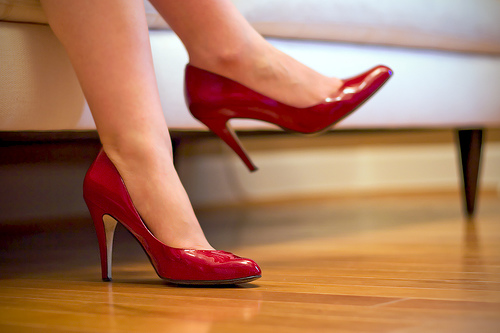
“One has to be careful about making too many judgments or drawing too many conclusions from a rehearsal, but last night’s final dress was indeed very promising.”
The spy continues:
I don’t want to give too much away, because part of the thrill of it is the freshness and originality with which the piece is viewed by this cast and crew. It really must be seen. This approach rewards a good knowledge of the text, because it seems that every word, phrase and sentence has been carefully re-thought from scratch. This, I would imagine, is how Peter Brook rethought A Midsummer Night’s Dream back in the early 70s—a seminal production which this one in many ways resembles.
There is only one intermission, after the first act. From the beginning of act 2two to the very end, there is almost no break in the music. The scene transitions are done very cleverly, with the result that Violetta is propelled to her doom with an unremitting intensity. Her doom is signaled from the her first entrance, very quiet, during the act one prelude.
There is a strong emphasis on acting, being in the moment, listening to (or callously ignoring) other characters in the drama. There are many examples of this throughout, and the overall effect is deeply engrossing.
Poplavskaya is absolutely committed from the beginning. Her movement, and what she is willing to do physically (e.g., run backwards in 7 inch stilettos on a narrow bench or on a raked platform!) are really quite astonishing. But it is all done so well that it truly contributes to the audience’s understanding of the character, rather than posing a flashy distraction. She is really a pleasure. This may be the most totally conceived and executed Violetta since Patricia Brooks‘s still well-remembered performances under Frank Corsaro in the late 60s.
Andrzej Dobber and Matthew Polenzani did excellent work, but I imagine each will get quite a few notes from Decker in the days before the premiere. He asks a lot of them, (Alfredo is especially distraught in every sense at the end of act 2 scene 1.) I can imagine him saying : “MORE, Mathew, MORE,” and while Poplavskaya can handle gigantic emotion without seeming hammy, the other two don’t quite pull it off . . . as yet.
The conducting, too, was very promising. Noseda really gave the orchestra a work out. He takes things like “allegro brilliantissimo” literally and finds a way to do it. He is clearly a brilliant musician and an inspiring conductor.
The set is famously stark. The focus is on the characters, not the decors. It works well with this cast. I could probably do with even a bit less on stage. The floral muu-muus matching the backdrop and slipcovers — while I did get the point — might have been just a bit much.
Yes, a rehearsal, but quite a thrilling one, and filled with promise. I look forward to seeing it a few more times.















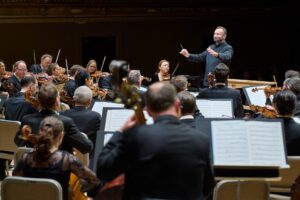
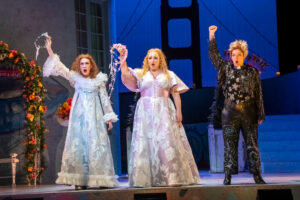
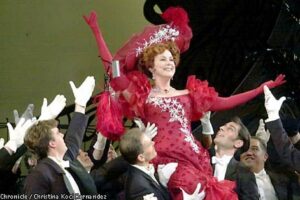
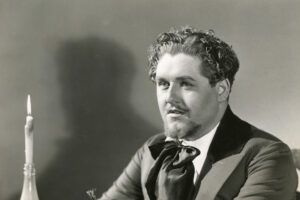







Comments